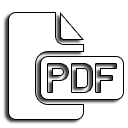Enhancing Environmental Awareness in Waste Management Based on the Perspective of Jürgen Moltmann's Theology of Hope
DOI:
https://doi.org/10.59002/jtp.v5i1.143Keywords:
Congregation, Designated Ministers, Theology, WasteAbstract
This study presents a waste management intervention model based on Jürgen Moltmann’s Theology of Hope at the GMIM Sion Woloan congregation in the Tomohon Two region. Employing a qualitative approach, data were collected through observation, documentation, interviews, and literature review, then analyzed descriptively. The results indicate that although theological motivation regarding the importance of reduction, separation, and recycling has been conveyed in sermons by designated ministers, actual practices in the field have yet to be implemented. This is also underpinned by a lack of segregated facilities, technical understanding, and cross-sector synergy. Therefore, the formulation of an integrated homiletics of hope, enhancements to infrastructure, and partnerships with government bodies and recycling institutions are key to realizing a sustainable ecological liturgy. These findings affirm that eschatological hope can mobilize the congregation to care for creation in concrete ways.
References
Abdussamad, Z. & Lestari Handayani, S. (2022). Eco-theological construction of waste management in the Rehobot Church congregation, Kupang City, East Nusa Tenggara. Sodality: Jurnal Sosiologi Pedesaan, 10(3), 228–239. https://doi.org/10.22500/10202238628
Artiyani, D. & Anggorowati, A. (2019). Pengolahan Sampah Terpadu Desa Karangkates Untuk Mencapai Zero Waste. Industri Inovatif: Jurnal Teknik Industri, 9(1), 15-20, https://doi.org/10.36040/industri.v9i1.376
Conradie, E. M. (2012). Christianity and Ecological Theology: Resources for Further Research. SUN Press.
Kaza, S., Yao, L. C., Bhada-Tata, P., & Van Woerden, F. (2018). What a Waste 2.0: A Global Snapshot of Solid Waste Management to 2050. The World Bank https://doi.org/10.1596/978-1-4648-1329-0.
Kementerian Koordinator Bidang Pembangunan Manusia dan Kebudayaan. (2023). 7,2 juta ton sampah di Indonesia belum terkelola dengan baik. https://www.kemenkopmk.go.id/72-juta-ton-sampah-di-indonesia-belum-terkelola-dengan-baik.
McFague, S. (1993). The Body of God: An Ecological Theology. Fortress Press.
Misra, R. V., Roy, R. N., & Hiraoka, H. (2003). On-farm composting methods (Land and Water Discussion Paper No. 2). Rome: Food and Agriculture Organization of the United Nations. Retrieved from https://openknowledge.fao.org/handle/20.500.14283/9230
Moltmann, J. (1993a). God in Creation: A New Theology of Creation and the Spirit of God. Fortress Press.
Moltmann, J. (1993b). The Church in the Power of the Spirit. Fortress Press.
Moltmann, J. (1967). Theology of Hope: On the Ground and the Implications of a Christian Eschatology. Harper & Row.
Moleong, L. (2016). Metodologi Penelitian Kualitatif. Remaja Rosdakarya.
Mulia, R. M. & Setiawati S. (2021). Pengelolaan Lingkungan Hidup. MNC ISBN 9786024628062.
Nelwan, V. A., Binilang, B. & Rogahang H. J. (2021). Peran Gereja untuk Mendidik Jemaat dalam Pengelolaan Sampah di GMIM Nazareth Tingkulu Kota Manado. Jurnal Ilmiah Wahana Pendidikan, Vol. 7, No. 1. https://doi.org/10.5281/zenodo.4554594
Republik Indonesia. (2008). Undang-Undang Republik Indonesia Nomor 18 Tahun 2008 tentang Pengelolaan Sampah, Pasal 5-7.
Siagian, J. W. (2009). Lead by Heart: Kepemimpinan andal yang menggunakan hati. ANDI. ISBN 9789792910568.
United Nations Environment Programme. (2015). Global Waste Management Outlook. UNEP.
Downloads
Published
How to Cite
Issue
Section
License
Copyright (c) 2025 Gabriela Veren Kapoh, Helen Gratia Masambe, Nontje Mery Timbuleng

This work is licensed under a Creative Commons Attribution 4.0 International License.













